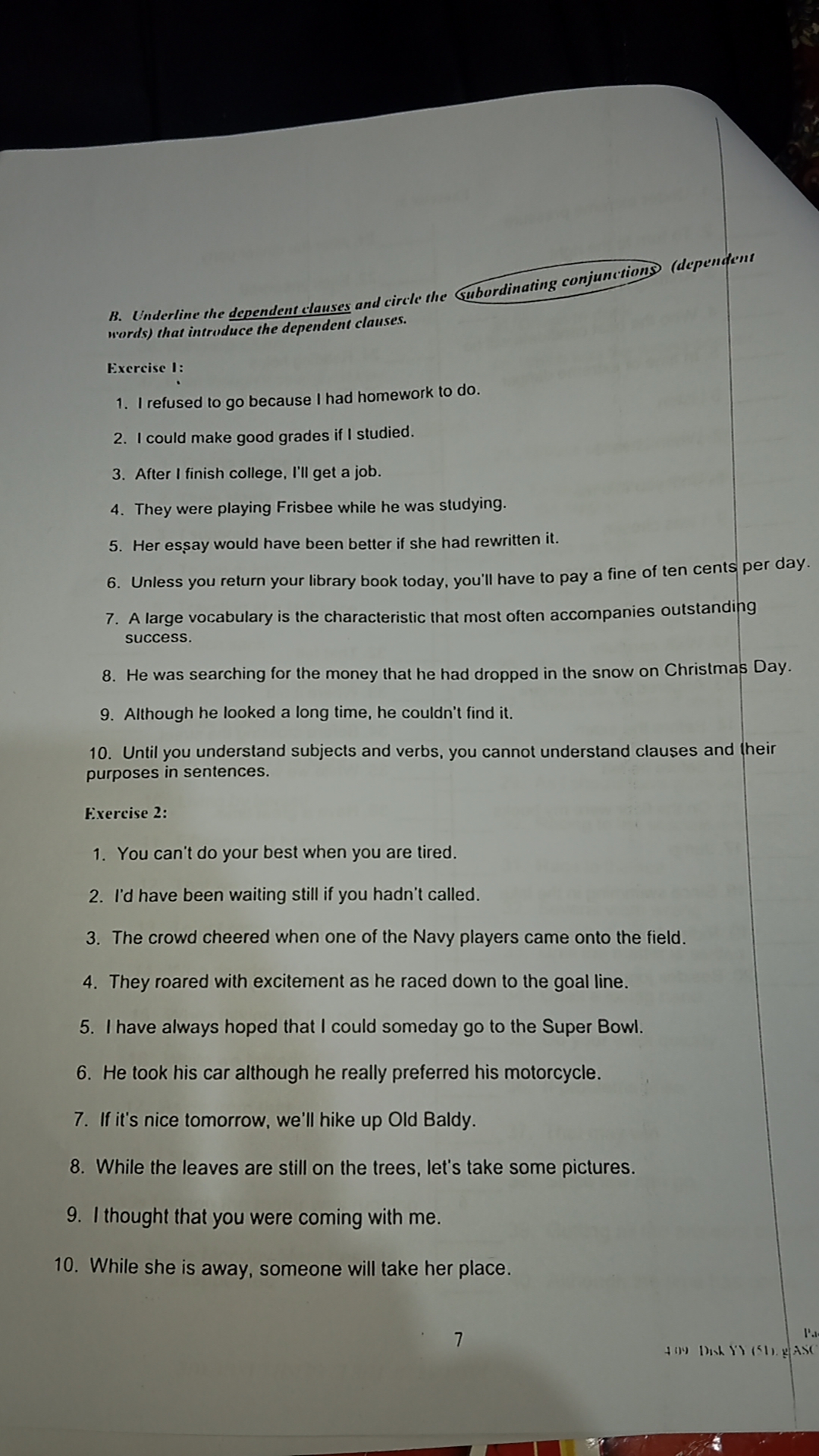Underline the dependent clauses and circle the subordinating conjunctions in the sentences provided.

Understand the Problem
The question is asking for an identification of dependent clauses and the subordinating conjunctions that introduce them in the provided sentences. It requires understanding of syntax and grammar.
Answer
Answers include underlined dependent clauses and circled subordinating conjunctions.
- I refused to go [because I had homework to do].
- I could make good grades [if I studied].
- [After I finish college], I'll get a job.
- They were playing Frisbee [while he was studying].
- Her essay would have been better [if she had rewritten it].
- [Unless you return your library book today], you'll have to pay a fine of ten cents per day.
- A large vocabulary is the characteristic [that most often accompanies outstanding success].
- He was searching for the money [that he had dropped in the snow on Christmas Day].
- [Although he looked a long time], he couldn't find it.
- [Until you understand subjects and verbs], you cannot understand clauses and their purposes in sentences.
Exercise 2:
- You can't do your best [when you are tired].
- I'd have been waiting still [if you hadn't called].
- The crowd cheered [when one of the Navy players came onto the field].
- They roared with excitement [as he raced down to the goal line].
- I have always hoped [that I could someday go to the Super Bowl].
- He took his car [although he really preferred his motorcycle].
- [If it's nice tomorrow], we'll hike up Old Baldy.
- [While the leaves are still on the trees], let's take some pictures.
- I thought [that you were coming with me].
- [While she is away], someone will take her place.
Answer for screen readers
- I refused to go [because I had homework to do].
- I could make good grades [if I studied].
- [After I finish college], I'll get a job.
- They were playing Frisbee [while he was studying].
- Her essay would have been better [if she had rewritten it].
- [Unless you return your library book today], you'll have to pay a fine of ten cents per day.
- A large vocabulary is the characteristic [that most often accompanies outstanding success].
- He was searching for the money [that he had dropped in the snow on Christmas Day].
- [Although he looked a long time], he couldn't find it.
- [Until you understand subjects and verbs], you cannot understand clauses and their purposes in sentences.
Exercise 2:
- You can't do your best [when you are tired].
- I'd have been waiting still [if you hadn't called].
- The crowd cheered [when one of the Navy players came onto the field].
- They roared with excitement [as he raced down to the goal line].
- I have always hoped [that I could someday go to the Super Bowl].
- He took his car [although he really preferred his motorcycle].
- [If it's nice tomorrow], we'll hike up Old Baldy.
- [While the leaves are still on the trees], let's take some pictures.
- I thought [that you were coming with me].
- [While she is away], someone will take her place.
More Information
Dependent clauses add additional information to a sentence and start with subordinating conjunctions like because, if, after, while, although, etc.
Tips
A common mistake is not recognizing 'that' as a subordinating conjunction connecting relative clauses.
Sources
- Packet 4 - Tutoring Centers at IRSC: Home - irsc-asc.weebly.com
AI-generated content may contain errors. Please verify critical information